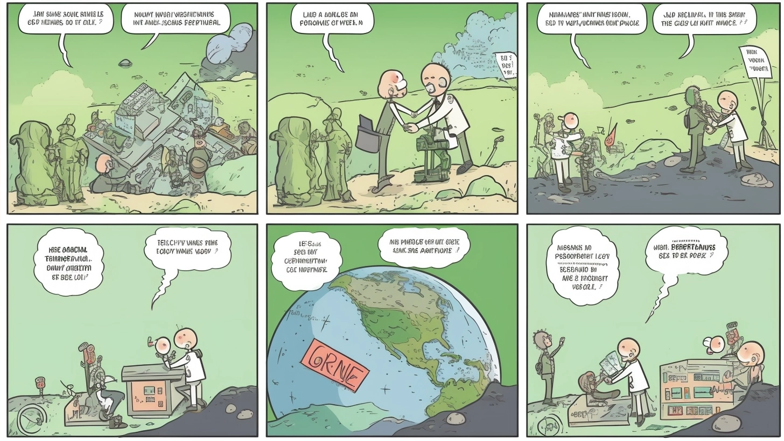
The greenhouse effect is a natural phenomenon that occurs when certain gases in the Earth's atmosphere trap heat from the sun, which then warms the planet. Without the greenhouse effect, our planet would be too cold to support life as we know it. However, when these gases, such as carbon dioxide, methane, and nitrous oxide, are released into the atmosphere in excess, they act as a blanket, increasing the Earth's temperature and causing global warming.
Human activities are the primary cause of the increase in greenhouse gases in the atmosphere. Fossil fuels, such as coal, oil, and gas, are burned for energy and are one of the most significant sources of carbon dioxide emissions. Transportation, industry, and agriculture also contribute to the release of greenhouse gases. Deforestation, land-use changes, and agriculture, including livestock production, are responsible for significant methane and nitrous oxide emissions.
Scientists have been warning about the dangers of climate change for decades, yet it seems that little action has been taken to address the problem. In 2015, the Paris Climate Agreement was signed, which aimed to keep global temperature increases below 2 degrees Celsius and to pursue efforts to limit the temperature increase to 1.5 degrees Celsius. However, many countries are struggling to meet the agreements they made, and global emissions show no signs of slowing down.
The consequences of climate change will be severe if we fail to act now. One of the most significant impacts will be on water resources, with droughts and floods becoming more common. This will have a devastating effect on agriculture, leading to food shortages and increasing prices. The World Bank estimates that climate change could push over 100 million people into extreme poverty by 2030. Rising sea levels will also cause many coastal cities to flood, leading to the displacement of millions of people.
The effects of climate change will not be limited to the environment and human health. Economic consequences will also be severe. Extreme weather events, such as hurricanes, floods and droughts, can have a significant impact on businesses and economies. The insurance industry, for example, is already seeing the effects of climate change, with insurance premiums increasing due to the increase in natural disasters.
It is clear that urgent action is needed to reduce carbon emissions and other harmful practices. In order to meet the goals of the Paris Agreement, it is essential that governments, businesses, and individuals work together to reduce their carbon footprint. This will require a significant shift towards renewable energy sources such as wind, solar, and hydropower. Electric cars, public transportation, and biking are all ways individuals can reduce their carbon footprint.
Reducing deforestation is also crucial in the fight against climate change. Trees absorb carbon dioxide and produce oxygen, making them essential in the process of photosynthesis. The preservation and reforestation of forests, along with the reduction of greenhouse gas emissions, can help to mitigate the effects of climate change.
While changing the way we consume and produce energy may be difficult, it is not impossible. There are already examples of cities and countries that are taking steps to reduce their carbon footprint. For example, the city of Copenhagen is aiming to be carbon neutral by 2025, and Finland's government has set a goal to ban the use of coal for energy by 2030. These examples are encouraging, but much more needs to be done.
The time to act is now. Governments, businesses, and individuals need to take responsibility for their actions and work together to reduce carbon emissions and other harmful practices. A failure to act now will have serious and potentially irreversible consequences for the planet and future generations. We cannot continue to ignore the problem and hope that it will go away.
In conclusion, human activities are contributing to the greenhouse effect and resulting in climate change. We are already seeing the catastrophic consequences, including rising sea levels, more frequent and severe weather events, and food and water shortages. It is essential that we take urgent action to reduce carbon emissions and other harmful practices. We need to work together to shift towards renewable energy sources, reduce deforestation, and make changes in our daily lives to reduce our carbon footprint. This is not a problem that will go away on its own, but with concerted effort, we can still make a difference.
Comments
Post a Comment